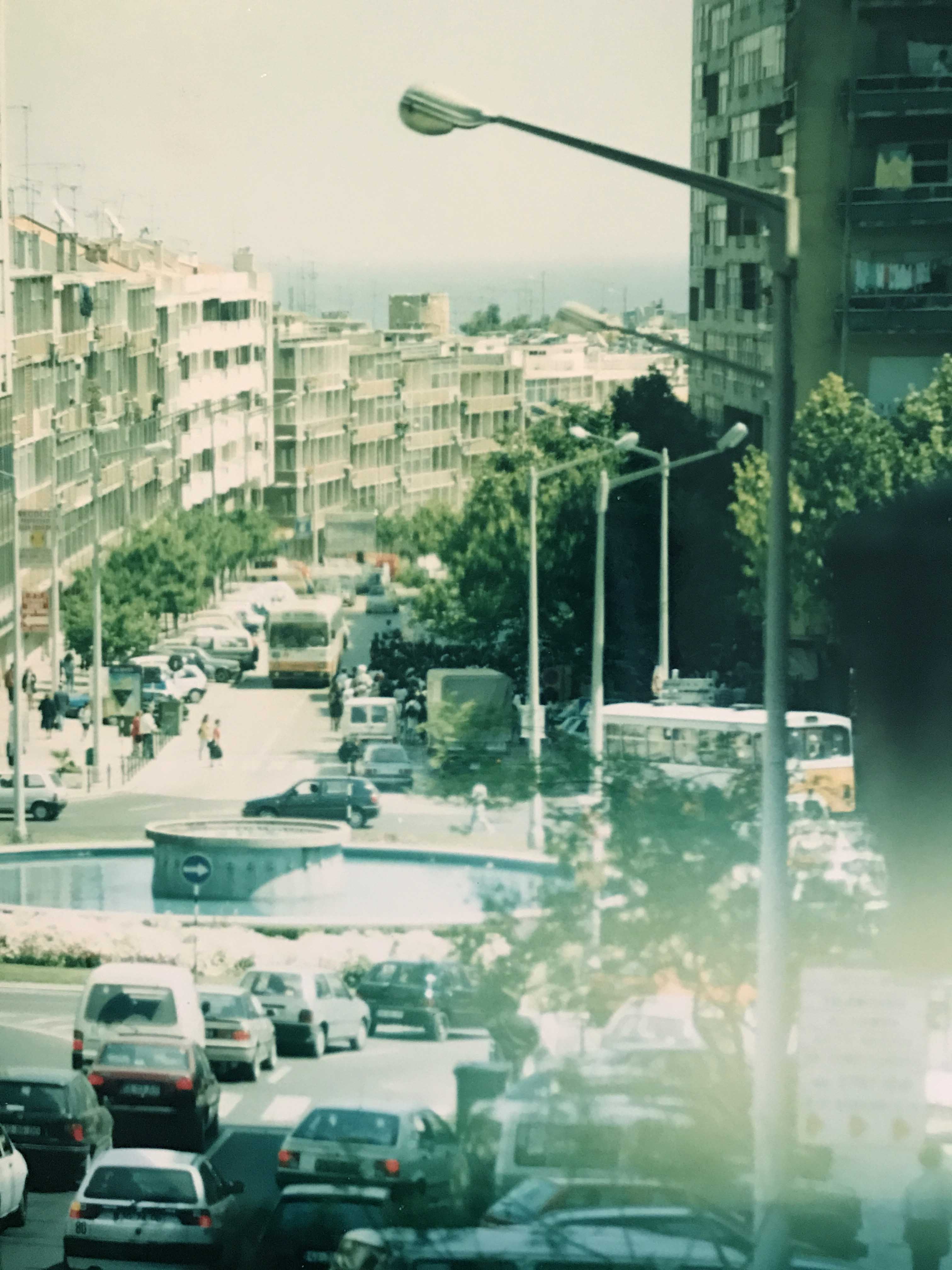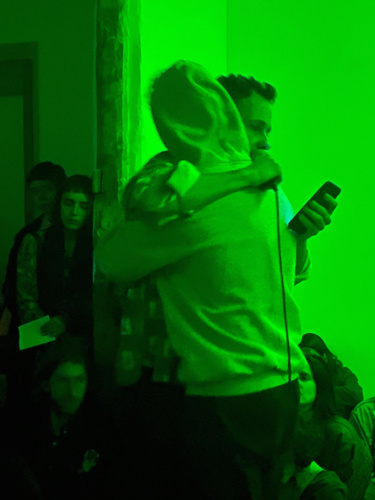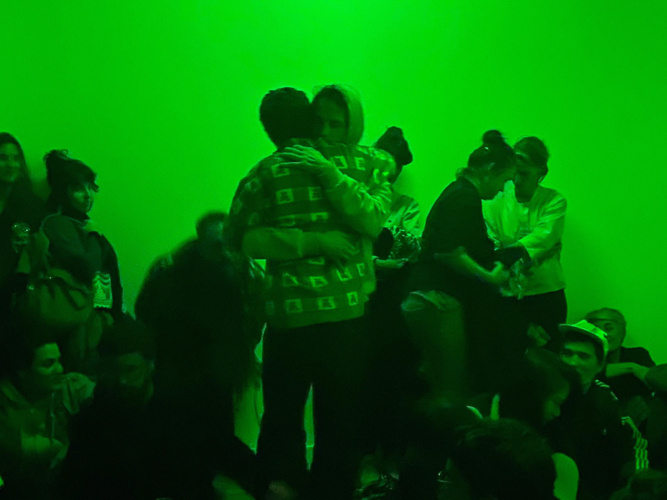Pedro Barateiro: My body, this paper, this fire

How do we change the way we relate to each other and to all this?
In 1961, Michel Foucault published Madness and Civilization. Almost a dozen years later, he would add an appendix to the 1972 edition in direct reply to the criticism of philosopher Jacques Derrida: This body, this paper, this fire. Between these two Madness and Civilization editions, May '68 took place—the catalyst of a social revolution in France instigated by student protests that would have global repercussions.
Today, May 20, Foucault is reread in light of recent events. In the last two months, we have watched a Foucauldian constellation unfold: one where sovereignty, discipline, biopower, and biopolitics have been unevenly affirmed, exacerbated, or changed to bring about swift geopolitical consequences, many of which hard to predict in the long run.
Maybe because of such anxieties, I woke up on just another lockdown morning—when days seemed weekends, time seemed to unfold alternatively, and, in view of the freedom of an indefinite global standstill, there was the feeling that I was producing too little. On one of those dateless days, I woke up thinking about My body, this paper, this fire, the performance Pedro Barateiro had presented with João dos Santos Martins in March at Galeria Zé dos Bois.
Firstly, My body came to mind because that was the night I had attended a public event for the last time. The first COVID-19 cases in Portugal had been reported in the same week, and the small room on the 3rd floor of ZDB was full, no room for more bodies. A faint, green light illuminated the space. Among those who had managed to get in, an awareness of the proximity of bodies was awkwardly increasing. We had already been told we should not touch our faces with our hands after we had touched another person, but no one seemed to know for sure how seriously we should take such recommendations.
Then, I recalled what had happened during the actual performance. In contrast with the hesitant manner we distributed ourselves throughout the room, a long ambient track swayed two slowly moving, embraced bodies through the crowd. Performer João dos Santos Martins was wearing a grey sweatshirt with a hood covering the back of his neck, and was guiding Pedro Barateiro in a long, strong embrace only the end of the performance would break apart. Pedro, without ever letting go, started reading:
I will start with a very specific event I attended many years ago. I want to share this event with you today because it made me change my perspective on how I look and do things.
The specific event Pedro was referring to was one of many student protests that had taken place in Portugal from 1991 to 1995. During this four-year period, under the motto "Propinas não, bolsas sim" [No to tuition, yes to fellowships], thousands of high school and college students demanded a "progressively free" education, as foreseen in the Portuguese Constitution. They gathered in front of the Ministry of Education, invaded the University of Lisbon rector's office, demanded audits. In 1992, more than ten thousand students from all over the country were gathered in front of the Parliament to protest against the Lei das Propinas when the police intervened violently. Three more years of police violence in response to increasingly frequent student protests would follow.
When Pedro joined these protests on November 24, 1994, the use of police force was reported to have been one of the most violent instances since the fall of the fascist regime. Those years of student resistance would rouse a generation that had grown up in the 80s and early 90s, in a society that was still adapting to democracy, mass culture, globalisation, and the disappointment towards the way the values of the Revolution had been so swiftly absorbed by neoliberal policies.
The week after This body was presented, the Portuguese government declared state of emergency. For the first time since 1974, a ban on the right to strike would be passed in parliament. Naturally, protests involving mass gatherings would not be allowed either.
Around the time of the 1994 demonstration I became very aware of my body and my voice.
Pedro was still reading, his voice projected but measured, and moving slowly, embracing João. As they moved throughout the room, barely lifting their feet off the ground, the crowd adjusted to the space so as not to obstruct the choreography. In the small, full room, amid the crowd, we were unintentionally touching one another, and we were alert to it. Were we already excessively aware of the proximity of other bodies for fear of the pandemic, or because we more or less consciously knew that we would not be able to be so close to one another—hugging or protesting—in the near future?
Pedro was already appropriately speaking of permeability. The awareness of inhabiting a body capable of language, of representation, and of relationality. The challenge of positioning these capabilities in relation to other bodies and with other bodies in an empowering, catalysing manner. The permeability of language is no different from the permeability of the body. A body in protest is language turned into mass. This body, this paper, this fire was perfectly placed in that interval where language becomes body and the body asserts itself as language.
At the time of writing this text, that had been the last night I saw two people publicly embracing. I am writing from a new normal where avoiding to embrace is to care, not attending a public event is to care, maintaining distance while protesting is to care. In a reality where the permeability of the body is sought to be restrained by all means, what can language do? We still have this paper and this fire.
I have no right to ask anything from you. But we are together in separation.
Alice dos Reis 1995, Lisbon (Portugal).
Lives and works in Amsterdam (Netherlands).
Translation: Diogo Montenegro
Pedro Barateiro: My body, this paper, this fire. Performance with João dos Santos Martins at Galeria ZDB, Lisbon. March 2020. Courtesy the artists.
Notes:
[1] Foucault, Michel: Folie et Déraison. Éditions Plon, 1961.
[2] Foucault, Michel: Histoire de la folie à l'âge classique, Éditions Gallimard, 1972.





